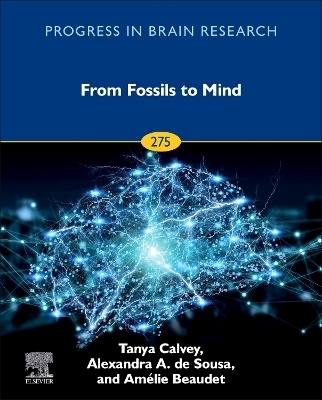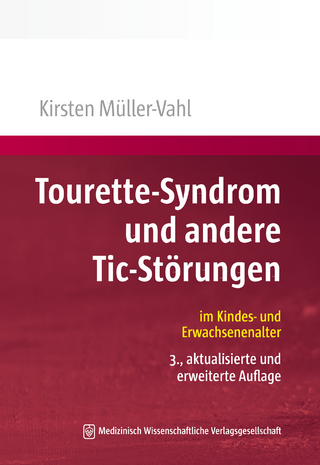
From Fossils to Mind
Elsevier - Health Sciences Division (Verlag)
978-0-323-99107-0 (ISBN)
Dr. Tanya Calvey has a background in evolutionary neurobiology and lectures morphological anatomy in the Faculty of Health Sciences, University of the Witwatersrand. Tanya’s current research is on the neuropsychopharmacology of ibogaine and substance use disorders in humans and animals. Her research team is multidisciplinary and her research is funded by the South African Medical Research Council, the South African National Research Foundation and the International Society for Neurochemistry. Tanya is also actively involved in developing neuroscience research in Africa. She is the Secretary of the Southern African Neuroscience Society and the co-founder of the Wits Cortex Club. Dr. Alexandra A. de Sousa has a background in anthropology, human evolution, and comparative neuroanatomy. She is interested in the biological basis of behavior in general and the origin of the human mind in particular. She applies diverse interdisciplinary approaches to her research questions, which led her to found the European Network for Brain Evolution Research in 2010. Her research also applies evolutionary theory to understanding contemporary human behavior, sensation, and cognition, and its neural correlates. She joined Bath Spa University, UK, as a Senior Lecturer in Psychology in 2015. She is currently a Visiting Scientist at the Allen Institute for Brain Research in Seattle, USA. Dr Amélie Beaudet is a paleoanthropologist working on Plio-Pleistocene hominin paleobiology with a particular interest in the evolutionary and adaptive contexts from which the genus Homo emerged. She started my research on the African fossil record within the frame of my PhD at the University of Toulouse (France) in 2012 that focused on the study of nonhominin primates that coexisted with hominins during the Plio-Pleistocene transition in Africa. During her postdoctoral contract at the University of Pretoria (South Africa) in 2016 funded by the Erasmus program AESOP+, she developed a particular interest in the hominin brain evolutionary history. Subsequently, she was granted funding from the Claude Leon Foundation and the Center of Excellence in Palaeosciences to study the fossil hominin assemblage from the site of Sterkfontein as a postdoctoral research fellow at the University of the Witwatersrand (South Africa) from 2017 to 2020. She joined the University of Cambridge as a lecturer in 2020.
1. Endocasts of ornithopod dinosaurs: Comparative anatomy
2. At the root of the mammalian mind: The sensory organs, brain and behavior of pre-mammalian synapsids
3. Insights into brain evolution through the genotype-phenotype connection
4. Coevolution of language and tools in the human brain: An ALE meta-analysis of neural activation during syntactic processing and tool use
5. Brain evolution and language: A comparative 3D analysis of Wernicke’s area in extant and fossil hominids
6. Lateralized behaviors in living humans: Application in the context of hominin brain evolution
7. Evolutionary and genomic perspectives of brain aging and neurodegenerative diseases
8. Evolutionary history of hominin brain size and phylogenetic comparative methods
| Erscheinungsdatum | 06.02.2023 |
|---|---|
| Reihe/Serie | Progress in Brain Research |
| Verlagsort | Philadelphia |
| Sprache | englisch |
| Maße | 191 x 235 mm |
| Gewicht | 1000 g |
| Themenwelt | Geisteswissenschaften ► Psychologie ► Biopsychologie / Neurowissenschaften |
| Naturwissenschaften ► Biologie ► Humanbiologie | |
| Naturwissenschaften ► Biologie ► Zoologie | |
| ISBN-10 | 0-323-99107-6 / 0323991076 |
| ISBN-13 | 978-0-323-99107-0 / 9780323991070 |
| Zustand | Neuware |
| Informationen gemäß Produktsicherheitsverordnung (GPSR) | |
| Haben Sie eine Frage zum Produkt? |
aus dem Bereich


